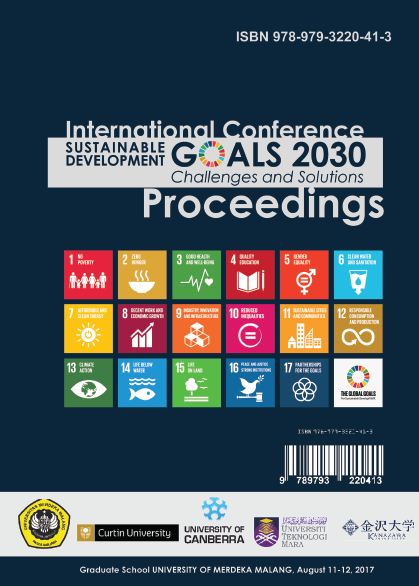Public Service Innovation in The Perspective of Public Choice Theory
DOI:
https://doi.org/10.26905/icgss.v9i1.15723Keywords:
Public Service Innovation, Public Choice TheoryAbstract
This research aims to analyze innovation in public service through the lens of Public Choice Theory, a framework that examines public service from the perspective of economic behavior and individual rationality in decision-making processes. Public Choice Theory emphasizes the significance of individual preferences and competition in determining optimal services for the community. In the context of public service innovation, this approach provides a new perspective on how the government can enhance service quality by adapting to the needs and preferences of the populace while also improving accountability within the bureaucracy. The study employs a descriptive qualitative method with a case study approach, focusing on several government agencies that have implemented technology-based services and community participation. The findings indicate that the application of Public Choice Theory principles in public service fosters increased efficiency, transparency, and accountability, while also enhancing competitiveness among government service units. Furthermore, public choice-based service innovations can elevate community satisfaction and promote service sustainability. It is anticipated that these findings will offer recommendations for the government to develop responsive, competitive public service policies that are oriented towards the needs of citizens.
Downloads
References
Afrizal, D., et al. (2023). E-Government services: Improving employment services in Dumai City. Publication: Journal of Public Administration Sciences, 8(2), 148–159. https://doi.org/10.26905/pjiap.v8i2.10266
Andani, A. T. V., et al (2019). Implementation of the One Day Service Program in Improving the Quality of Services of the City National Land Agency. Scientific Journal of Public Administration, 5(3), 328–336. https://doi.org/10.21776/ub.jiap.2019.005.03.9
Haikal, M. F. (2022). Accountability and Transparency in Public Services (Case Study of E-KTP Service at Tallo Makassar District Office). Journal of State Administration, 28(April), 89–112.
Hilda, N. (2014). Public Policy and Management Service Innovation Strategy in Improving Service Quality at the Surabaya City Land Office II. Public Policy and Management, 2, 1–10. www.bpn.go.id
Maani, K. D. (2013). The struggle between economics and politics in the perspective of public choice. WINDOW: Scientific Journal of Social and Cultural Sciences and Economics, 9(2), 157–159. https://ejournal.unp.ac.id/index.php/tingkap/article/view/4436
Mahmudi. (2010). Public Sector Performance Management (Second). YKPN College of Management Sciences Yogyakarta.
Mahsyar, A. (2011). Public Service Problems in Indonesia in the Perspective of Public Administration. Authority: Journal of Government Science, 1(2), 81–90. https://doi.org/10.26618/ojip.v1i2.22
Nugraheni, R. Y., et al (2021). Land Service Innovation Online Certificate Checking. Perspective, 10(1), 47–56. https://doi.org/10.31289/perspektif.v10i1.4017
Putri, Y. A., Putera, R. E., & Rahayu, W. K. (2022). Information Service Innovation through the Touch-Tanahku Application at the North Jakarta Administrative City Land Office. Journal of Social and Policy Issues, 2, 86–94. https://doi.org/10.58835/jspi.v2i2.45
Rachbini, D. J. (2006). Political Economy and Public Choice Theory. Ghalia Indonesia.
Sururi, A. (2017). Public Policy Innovation (Conceptual and Empirical Review). Sawala: Journal of State Administration, 4(3), 1–14. https://doi.org/10.30656/sawala.v4i3.241
PANRB Ministerial Regulation No.30 of 2014 concerning Guidelines for Public Service Innovation
Law No. 25 of 2009 concerning Public Services
Downloads
Published
How to Cite
Issue
Section
License
Copyright (c) 2025 Proceedings of International Conference of Graduate School on Sustainability

This work is licensed under a Creative Commons Attribution-ShareAlike 4.0 International License.
Authors who publish in this journal agree to the following terms: Proceeding of International Conference of Graduate School on Sustainability is licensed under Creative Commons Attribution-ShareAlike 4.0 International. Creative Commons Attribution-ShareAlike 4.0 International License (CC BY 4.0) is applied when mandated by research funders, such as those who have signed. Open Access articles in Jurnal Cakrawala Hukum are published under theCreative Commons Attribution-ShareAlike 4.0 International (CC BY 4.0) license. The copyright of the received article shall be assigned to the journal as the publisher of the journal. The intended copyright includes the right to publish the article in various forms (including reprints). The journal maintains the publishing rights to the published articles. Authors must agree to the copyright transfer agreement by checking the Copyright Notice column at the initial stage when submitting the article.









